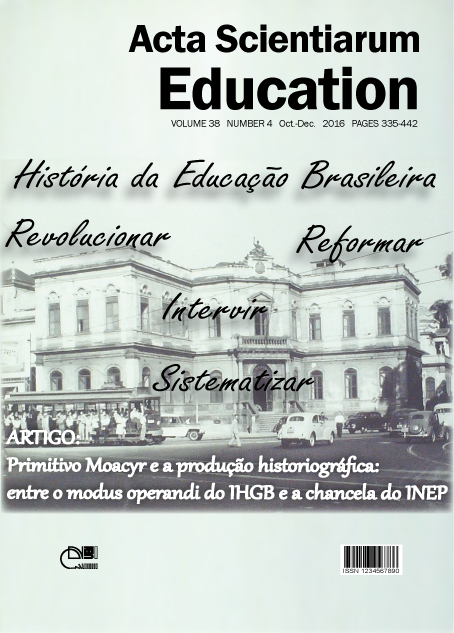<b>Indigenous children: the role of games, amusement and imitation in learning and development
Abstract
Current text, the result of research conducted by the project Observatório da Educação Escolar Indígena/UEM-PR, funded by CAPES / SECADI / INEP, deals with topics on indigenous childhood and education with reference to historical aspects. Games, their importance and their roles in family and community experiences as learning and development topics are underscored. Reports by ethnographers who had contact with indigenous groups in southern Brazil in the mid-nineteenth century and early twentieth century, and their records on indigenous childhood among families groups are provided. Recent studies on indigenous childhood, especially among the Kaingang,Guarani and Xetá ethnic groups, are also registered.
Downloads

This work is licensed under a Creative Commons Attribution 4.0 International License.
DECLARATION OF ORIGINALITY AND COPYRIGHTS
I declare that this article is original and has not been submitted for publication in any other national or international journal, either in part or in its entirety.
The copyright belongs exclusively to the authors. The licensing rights used by the journal are the Creative Commons Attribution 4.0 (CC BY 4.0) license: sharing (copying and distributing the material in any medium or format) and adaptation (remixing, transforming, and building upon the material thus licensed for any purpose, including commercial purposes) are permitted.
It is recommended that you read this link for more information on the subject: providing credits and references correctly, among other crucial details for the proper use of the licensed material.














































